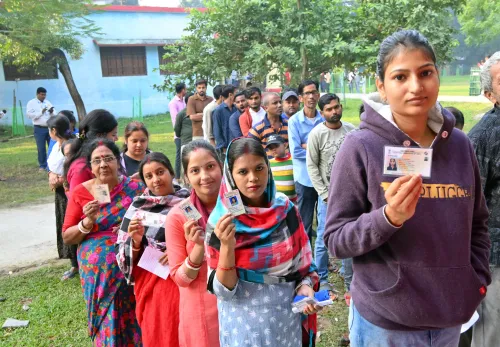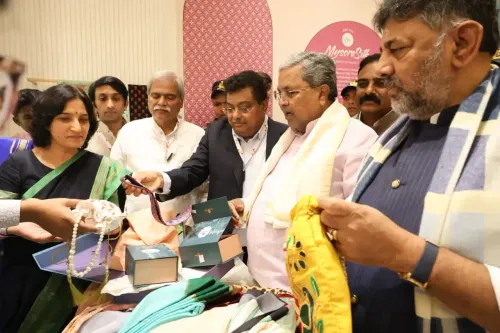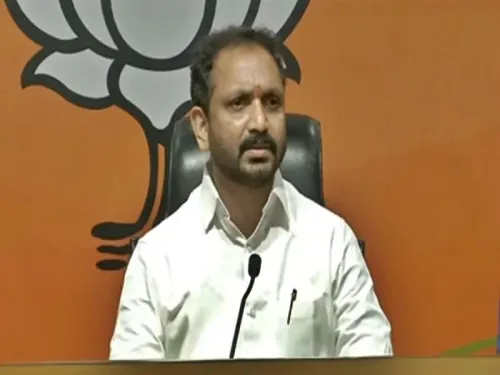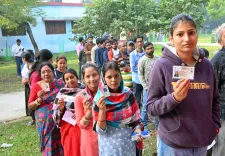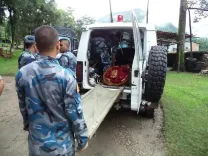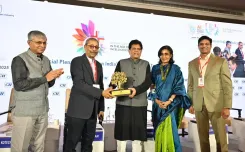How Can Karnataka Combat Child Marriage and Minor Pregnancies?
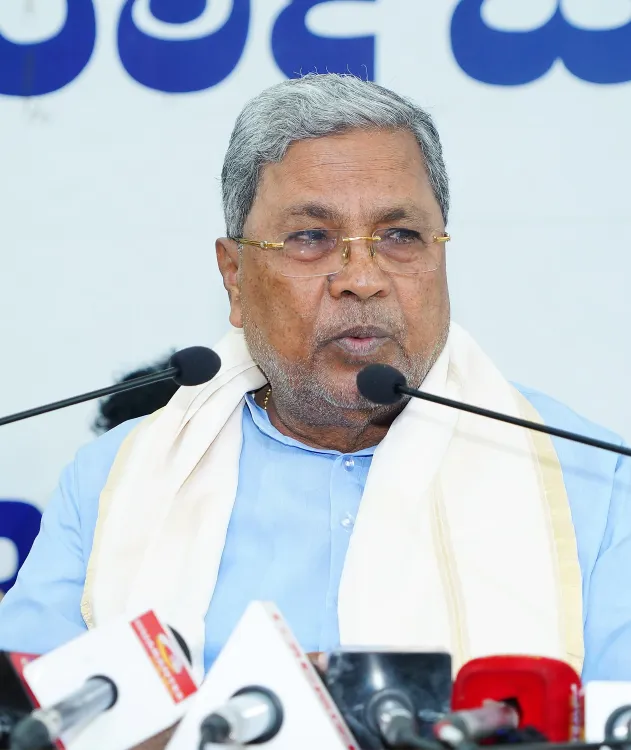
Synopsis
Key Takeaways
- Child marriage and pregnancies among minors are critical issues in Karnataka.
- Government officials are urged to take immediate action against offenders.
- Education department accountability is essential for improving exam results.
- Public engagement with parents is crucial for increasing school enrollments.
- Proactive measures are necessary to enforce existing laws on child marriage.
Bengaluru, May 31 (NationPress) Karnataka Chief Minister Siddaramaiah expressed serious concerns on Saturday regarding the ongoing issues of child marriage and pregnancy among minors. During a review meeting with Deputy Commissioners and Chief Executive Officers (CEO) of Zilla Panchayats at the Vidhana Soudha, he stated, "Cases of child marriage and pregnancy are particularly prevalent in communities that are economically disadvantaged, among Dalits, and in areas with low education levels. We must take immediate action to address this situation."
The Chief Minister challenged the officials, asking, "Do you not believe this issue requires urgent intervention?" He insisted on maintaining rigorous oversight and taking action against PDOs and revenue personnel who neglect to report such incidents.
Moreover, he mandated that criminal charges should be pursued against offenders where appropriate, ensuring legal measures are enforced.
Addressing the disappointing results of the Class 10 Board examinations, CM Siddaramaiah criticized education officials, asserting, "Do not use the lack of staff or teachers as a justification for poor SSLC results." He raised concerns about why only certain districts like Mangaluru achieve commendable results and called for accountability among District Deputy Directors of Public Instruction (DDPIs).
The CM instructed DDPIs and District In-charge Secretaries to conduct school inspections and ascertain whether teachers are actively engaged in their roles. "Excuses will not suffice; genuine commitment from educators and DDPIs can lead to successful outcomes across all regions," he remarked.
He urged prompt action in approving funds for classroom construction under the 'Viveka Scheme'. He noted that despite the release of funds, construction has not commenced in some areas, prompting him to ask Deputy Commissioners about the delays.
The Chief Minister emphasized the necessity for teachers and officials to engage with parents to halt the decline in government school enrollments. "Implement all possible measures to prevent student dropouts. DDPIs and Block Education Officers (BEOs) must regularly visit schools, and District In-charge Secretaries must closely monitor these efforts," he instructed.
He described the year-on-year drop in government school admissions as alarming. "The government is providing essential resources like eggs, milk, ragi malt, soup, and hostel facilities — why then are enrollments decreasing?" he questioned.
He urged officials to gather practical feedback to address these challenges. "Remember, true progress originates from the grassroots," he stated.
The CM insisted that DDPIs must not remain confined to their offices but should traverse their districts. CEOS are expected to actively oversee this and convene meetings with parents.
He issued strict directives to CEOs, Deputy Commissioners, and District In-charge Secretaries in areas where examination results and school admissions fall significantly below state averages, demanding improvements by the next academic year.
Furthermore, he emphasized that CEOs in Kalyana Karnataka and Hyderabad Karnataka districts should prioritize monitoring these situations. "Excuses for poor results are irrelevant — what matters is achieving better outcomes. Genuine efforts yield genuine results," he concluded.
Siddaramaiah also criticized Deputy Commissioners for their failure to monitor child marriages, expressing frustration over the lack of proactive measures. "This year alone, 700 child marriages have been reported, and there are instances of young girls becoming mothers. It has come to my attention that FIRs have not been filed in many cases," he stated.
"How is it possible that 700 child marriages still occur years after Independence? Laws exist to prohibit child marriage, yet enforcement remains inadequate in certain areas. Isn't this a failure?" the Chief Minister demanded.

